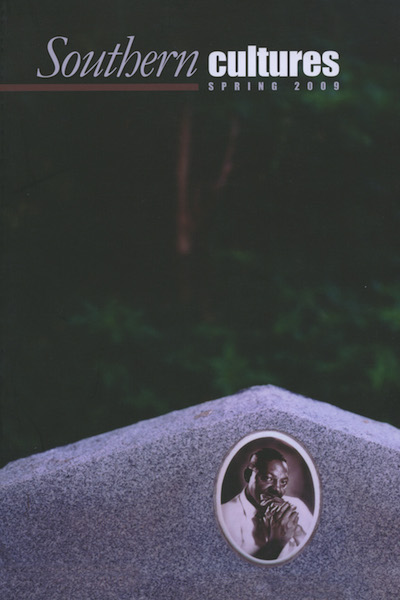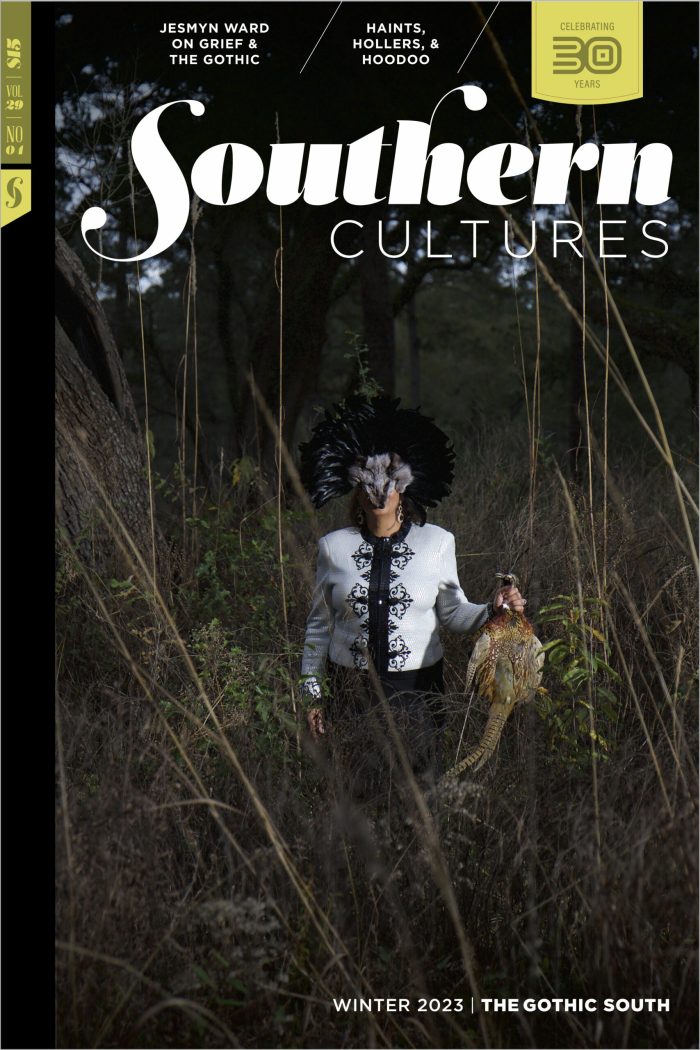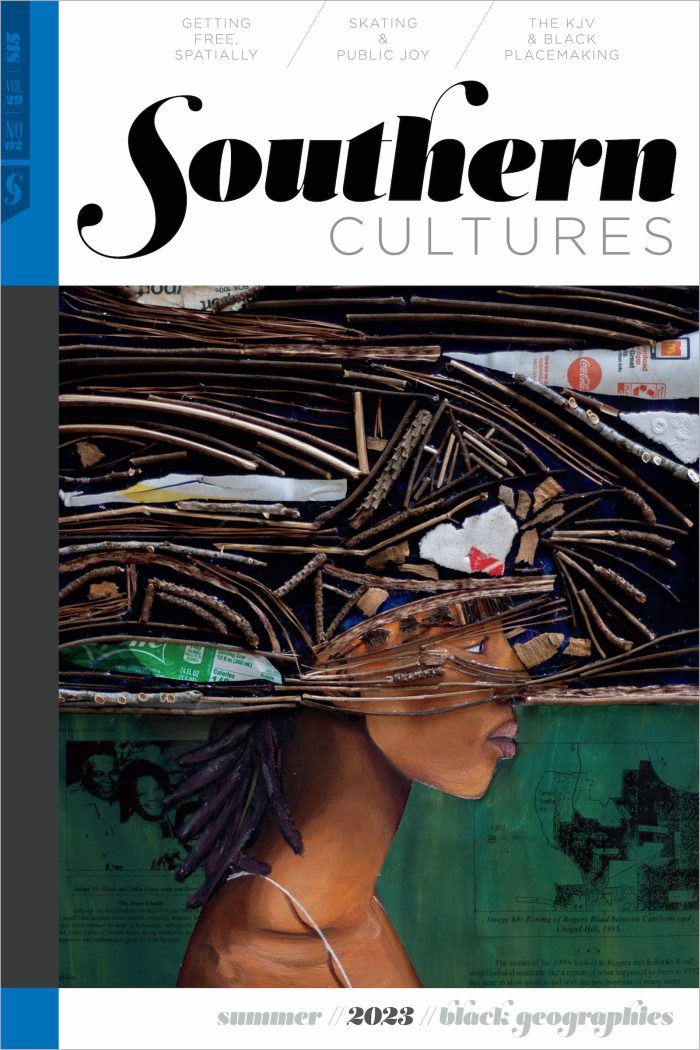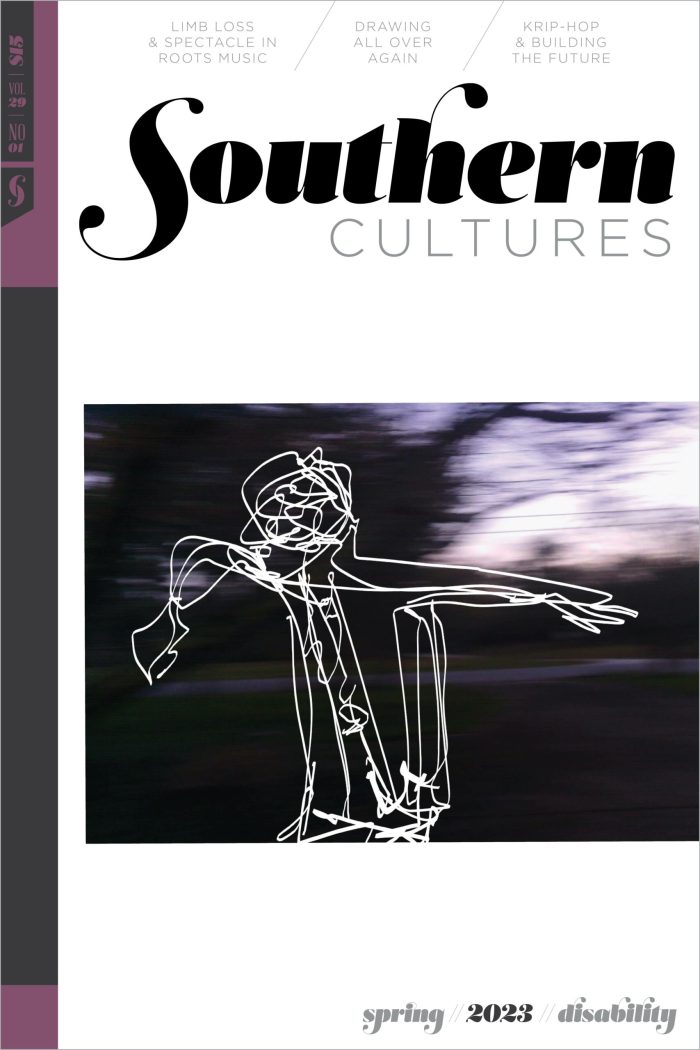BUY ACCESS
by Harry L. Watson
“Did you know that W. E. B. Dubois was a favorite author of the United Daughters of the Confederacy? They didn’t either, for they came to admire the outstanding African American intellectual under the cloak of invisibility.” At the end of Invisible Man, Ralph Ellison’s wrenching novel of the African American experience, the nameless narrator »
BUY ACCESS
by William E. King
“In 1937, the English novelist Aldous Huxley was traveling through North Carolina by auto one hot summer day. He described ‘a pleasant but unexciting land’ when ‘all of a sudden, astonishingly, a whole city of gray Gothic stone emerged from the warm pine forest.'” In 1937, a distinguished visitor touring the United States, the English »
BUY ACCESS
by James W. Loewen
“In 1987, Oprah Winfrey broadcast her television show from Forsyth County, Georgia, which had expelled its black population seventy-five years earlier.” Between 1890 and 1960, thousands of towns across the United States drove out their black populations or took steps to forbid African Americans from living in them, creating “sundown towns,” so named because many »
BUY ACCESS
by Bruce J. West
“A lush and exotic landscape–a setting encouraging and supporting heroic transformation–nurtures all endeavors.” In 1994 Bruce West began photographing the Mississippi Delta and surrounding areas. His interest in documenting the region arose from his ex-wife’s love of southern literature and because the South was the only part of the United States he had never traveled. »
BUY ACCESS
by Davis McCombs
“He crouched in the shade of the barn, thinking and mumbling, and the wind ripped the words from his mouth . . .” LexiconThe people are talking about budworms; they are talkingabout aphids and thrips. Under the bluff at Dismal Rock,there where the spillway foams and simmers,they are fishing and talking about pounds and allotments;they »
BUY ACCESS
by Kimberly D. Hill
“Periodically this jackass that y’all call Senator Jesse Helms was on the television talking about the outhouses that the colored folks had and laughing about the tubs that they had to bathe in.” Lemuel Delany is a retired funeral home director living with his wife and daughter in Raleigh, North Carolina. He comes from a »
by Bruce E. Baker
Nearly a century ago W. E. B. DuBois won an essay contest sponsored by the United Daughters of the Confederacy—or at least, DuBois’s writing won the contest.” Nearly a century ago W. E. B. DuBois won an essay contest sponsored by the United Daughters of the Confederacy in Columbia, South Carolina—or at least, DuBois’s writing »
BUY ACCESS
by Fred Sauceman
University of North Carolina Press, 2008 “History Highlights,” an online offering of the North Carolina Museum of History, posts two events for the year 1924. One is the founding of Duke University in Durham. The other is the opening of Bob Melton’s Barbecue in Rocky Mount. “It’s not clear why Duke gets equal billing,” write »
BUY ACCESS
by Leon Fink
University of Georgia Press, 2007 Reading this book makes me wish I were (back) in the land of cotton and feng shui, namely Chapel Hill, North Carolina. Part-ethnography, part-philosophical treatise, part-memoir, Grounded Globalism reflects the sunny disposition as well as the accumulated wisdom of the distinguished anthropologist James L. Peacock, long a champion of multicultural »
BUY ACCESS
by Robin Bernstein
University of North Carolina Press, 2007 In this groundbreaking book, Heather Andrea Williams marshals enormous primary evidence to reveal a previously untold story of African American self-help and self-determination in the quest for literacy before and after Emancipation. Drawing on expansive archival research and nuanced readings of legislation (Williams is a former attorney with the »
BUY ACCESS
by Alex Macaulay
University of Virginia Press, 2006 As a native South Carolinian who spent summers in Columbia visiting his grandparents, the first thing I think of when someone mentions Fort Jackson is sweltering heat. As a historian who studies the American South, the second thing I think of is journalist Lee Nichols’s 1953 peek inside a barracks »
BUY ACCESS
by Clara Silverstein
University of North Carolina Press, 2006 Making its Broadway debut in 1949, the musical South Pacific slipped in this pointed tune about racism to temper “Happy Talk” and “Some Enchanted Evening.” Though Rodgers and Hammerstein set their musical on a tropical island during wartime, they understood all too well the American formula for perpetuating prejudice. »
BUY ACCESS
by Perry Kasprzak
University of Pennsylvania Press, 2006 Unlike the many books already published about the devastation caused by Hurricanes Katrina and Rita and the catastrophic flooding of New Orleans, Blues for New Orleans: Mardi Gras and America’s Creole Soul is a study of the city’s character pre-disaster, bracketed by post-flood observations and questions concerning the future of »
BUY ACCESS
by Katy Simpson Smith
University of North Carolina Press, 2007 As a regional phenomenon, southern girlhood is as culturally resonant as it is understudied. From the myths surrounding Virginia Dare to the surreal pageantry of modern debutantes, the South has shaped its young women in its own ritualistic image. In her lovingly written new book, Anya Jabour dives into »
BUY ACCESS
by Charles W. Eagles
University of Alabama Press, 2006 In 2006 Wayne Flynt retired from Auburn University after teaching history for more than forty years. Born in Pontotoc, Mississippi, Flynt grew up in rural and small-town Alabama. By the time he graduated from Howard College (now Samford University) in Birmingham in 1961, he was an ordained Baptist minister, had »





